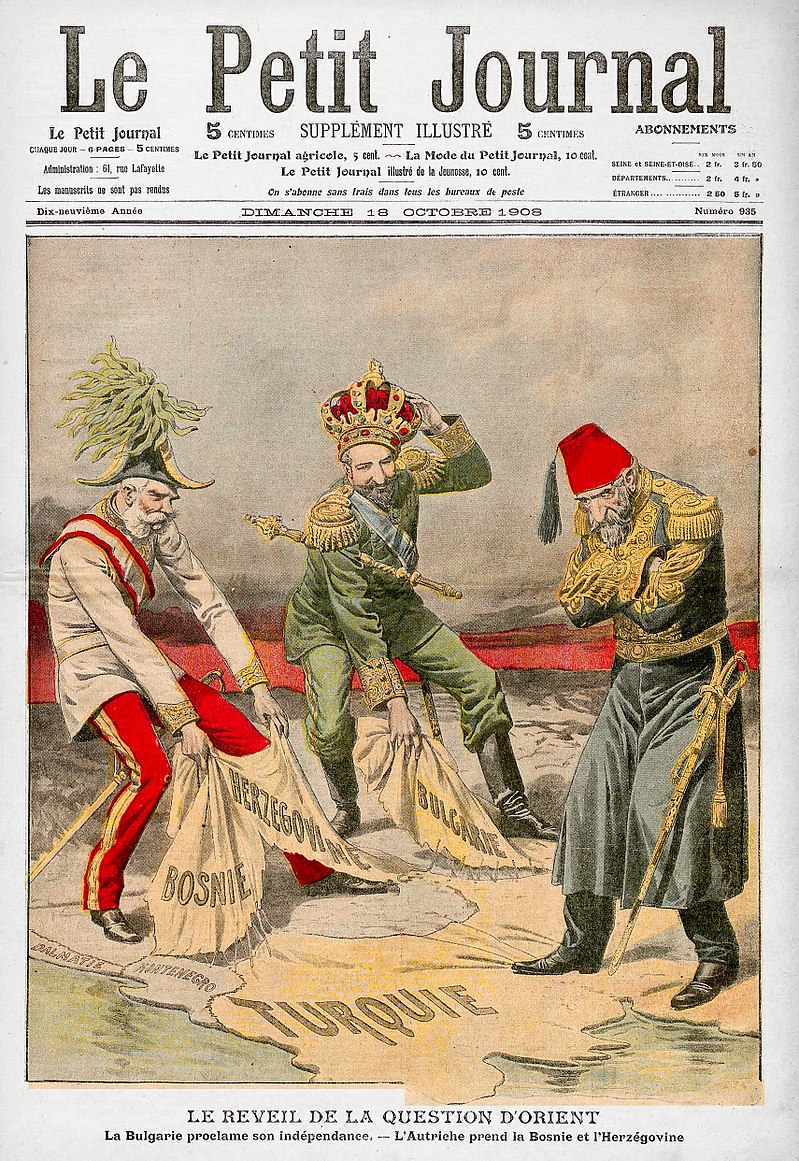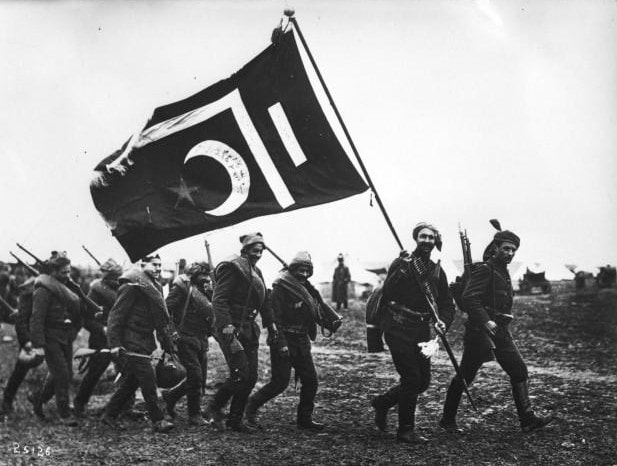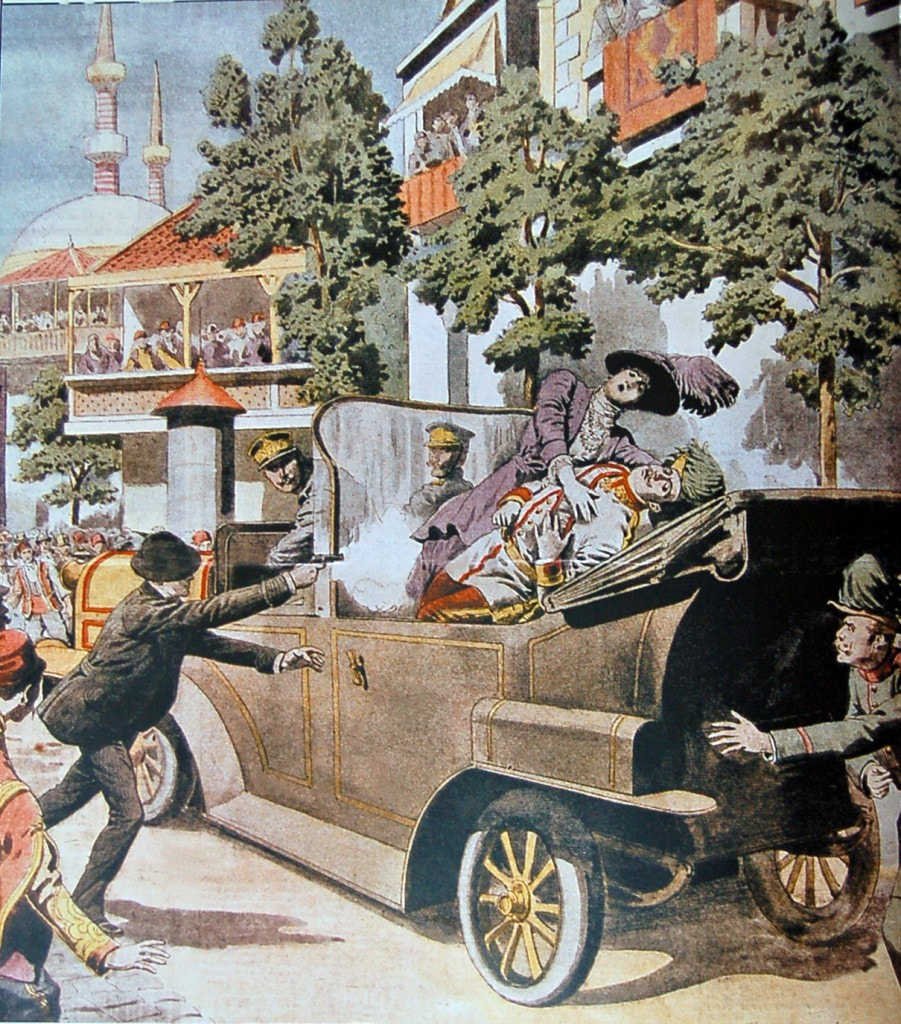FIRST BALKAN WAR
The First Balkan War was a significant conflict that occurred from 1912 until 1913. It took place in the Balkan Peninsula, which is a region in southeastern Europe. The First Balkan War involved a series of battles between the Balkan League (Bulgaria, Greece, Montenegro and Serbia) and the Ottoman Empire, which was located in the Middle East, on the edge of the European continent. Due to the timeframe in which it occurred, the First Balkan War (along with the later Second Balkan War) are considered to be important to World War I. In fact, historians consider the events of both Balkans Wars to be important causes of World War I, which began in 1914 following the assassination of Austrian Archduke Franz Ferdinand.
WHAT CAUSED THE FIRST BALKAN WAR?
The 19th century was a period of continuous change and competition in Europe. Not only was it the height of European imperialism, but it also saw the rise of nationalism, which swept across the continent. For instance, both Germany and Italy formally unified as countries in 1871. In both cases, smaller kingdoms unified into one larger country and saw the people of each country identify with each other nationalistically. This wave of nationalism also swept across the Balkans.
|
In the early 20th century, the Balkans was ruled by the Ottoman Empire. The Ottoman Empire dated back as far as the early 14th century and at its height stretched from the Middle East, Northern Africa, and large sections of Europe. It was a Sunni Islamic state that was based mainly out of modern-day Turkey. For example, the capital of the Ottoman Empire was the city of Constantinople, which today is called Istanbul. While the Ottoman Empire ruled over the Balkans for centuries, by the early 20th century, it was beginning to lose power over the region. This became most evident in 1908 when Austria exerted its influence in the Balkans with the Bosnian Crisis of 1908.
The Bosnian Crisis began in October of 1908 with the Austria annexation of Bosnia and Herzegovina. This means that Austria took control over the two territories. Previously they had been controlled by the Ottoman Empire but by this time the Ottoman Empire was in decline and losing its authority in the region. In fact, at the same time, the Balkan state of Bulgaria declared its independence from the Ottoman Empire. Austria’s annexation of Bosnia and Herzegovina created a crisis not only with the leadership of the Ottoman Empire, but also with other surrounding European nations including Italy, Russia and Serbia. This set the stage for the events of the First Balkan War in 1912.
|
MAJOR EVENTS OF THE FIRST BALKAN WAR
At its core, the First Balkan War centered on the conflict between the nations of the Balkans and the Ottoman Empire. As stated previously, the growth of nationalism in Europe led to this conflict, as it pushed nations in the Balkans to fight for their independence. For instance, In the first years of the 20th century, Serbia was hoping to expand throughout the Balkans. After Austria annexed Bosnia and Herzegovina during the Bosnian Crisis of 1908, Serbia focused its attention on the Ottoman Empire. Furthermore, Serbia sought an alliance in order to assist in its attack against the Ottoman Empire, which led to the formation of the Balkan League.
The Balkan League was an alliance between several Balkan nations, including as: Bulgaria, Greece, Montenegro, and Serbia. Serbia took the first steps in the creation of the alliance when they agreed to an alliance with Bulgaria in 1912. Next, Serbia signed another alliance with its neighboring country – Montenegro. Finally, Bulgaria agreed to an alliance with Greece, and the formation of the Balkan League was complete. Together, the four Balkan nations fought against the Ottoman Empire during the First Balkan War. The war began in October of 1912, when the Balkan League nations declared war against the Ottoman Empire.
When war began in 1912, each of the nations involved had different levels of military resources and soldiers. Bulgaria was the strongest member nation of the Balkan League and mobilized over 450,000 soldiers in the First Balkan War. Not only did it have a large number of forces, but the Bulgarian Army was also well organized and equipped, especially in relation to the other nations involved. For their part, Serbia entered the war with over 230,000 soldiers. Greece and Montenegro had considerably less forces, with Greece mobilizing approximately 125,000 and Montenegro mobilizing 45,000. Despite their lessened military force, they were both significant factors in the First Balkan War. For example, Greece had a strong naval force that was useful for preventing the Ottoman Empire from shipping in more troops from its empire in the Middle East.
The Ottoman Empire, which faced off against the Balkan League alone, had approximately 436,000 soldiers at the start of the war and added more as the war progressed. However, at this point in history the Ottoman Empire was essentially in decline as a political and militaristic force. For instance, during the First Balkan War, the leadership of the Ottoman Empire struggled to resupply and reinforce their forces in the Balkans. As such, the First Balkan War was a disaster for the Ottoman Empire and resulted in a major loss of territory for them in Europe.
The Ottoman Empire struggled in the First Balkan War due to several factors. First, the border of the Ottoman Empire in the Balkans was large. As such, the Ottoman’s were not able to properly fortify and defend it. Instead, The Ottoman Army was spread thin across the border, which allowed the forces of the Balkan League to easily overwhelm them. For instance, Bulgaria easily outnumbered the Ottoman forces in significant battles that included: the Battle of Kirk Kilisse, the Battle of Lule Burgas, the Battle of Adrianople and the First Battle of Çatalca.
The second reason for the failure of the Ottoman Empire in the First Balkan War was the role of Greece in the Aegean Sea. The Greek Navy was well prepared for the war and used their extensive forces in the Aegean Sea to prevent the Ottoman Empire from transporting supplies or soldiers to the Balkans. This was significant as it helped the Balkan League maintain their military advantage during the First Balkan War.
The third reason for the struggles of the Ottoman Empire was the lack of a reliable transportation network throughout the empire. The Ottoman Empire was quite large and stretched throughout sections of the Middle East and Northern Africa. As such, they had a large population from which they should have been able to call up more soldiers for the First Balkan War. However, the Ottoman Empire did not have any large railroad networks, which were common in Europe, and therefore did not have the ability to transport troops to the Balkans quickly. This provided the Balkan League with a decisive advantage. The First Balkan War finally ended on May 30th of 1913 with the signing of the Treaty of London.
OUTCOMES OF THE FIRST BALKAN WAR
|
Historians consider the First Balkan War to be significant for several reasons. First, as a result of its defeat, the Ottoman Empire gave up large sections of territory in the Balkans, which was taken over by the member nations of the Balkan League. Second, the events of the First Balkan War set the stage for the Second Balkan War, which began on June 29th in 1913. Third, historians consider the First Balkan War (and the Second Balkan War) to be significant causes of World War I, which began in 1914.
In fact, the event that sparked World War I was the assassination of the Austrian Archduke Franz Ferdinand on June 28th, 1914. Austria blamed Serbia for this action, since Ferdinand was murdered by Gavrilo Princip - a Bosnian nationalist and member of the Black Hand. The Black Hand was a secret organization aimed at promoting Serbian (and Slavic) nationalism, and assassinated Ferdinand in protest of Austria’s influence in the Balkans. As such, this displays that World War I was a direct result of the Bosnian Crisis of 1908 and the two Balkan Wars.
|
CITE THIS ARTICLEAUTHOR
|
|




